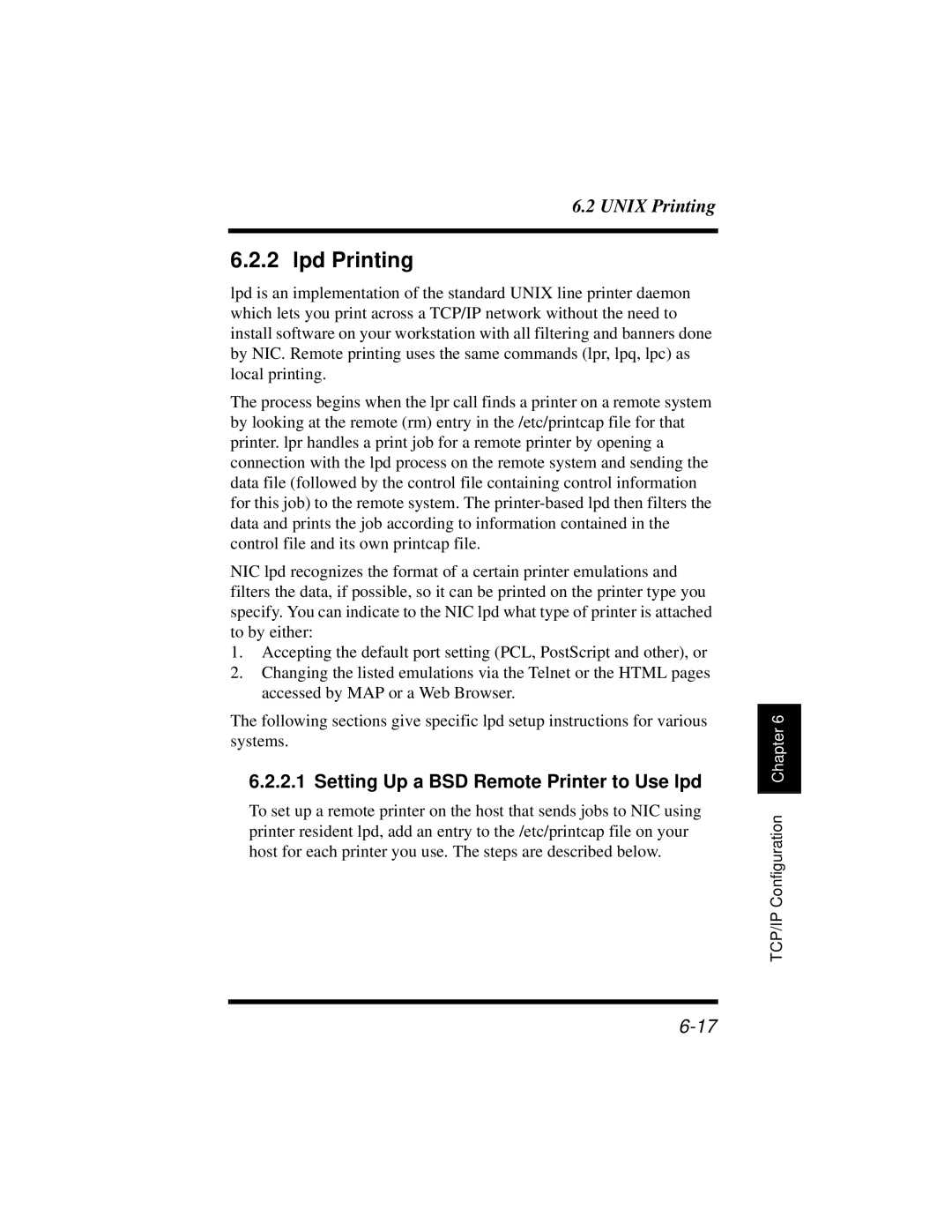
6.2 UNIX Printing
6.2.2 lpd Printing
lpd is an implementation of the standard UNIX line printer daemon which lets you print across a TCP/IP network without the need to install software on your workstation with all filtering and banners done by NIC. Remote printing uses the same commands (lpr, lpq, lpc) as local printing.
The process begins when the lpr call finds a printer on a remote system by looking at the remote (rm) entry in the /etc/printcap file for that printer. lpr handles a print job for a remote printer by opening a connection with the lpd process on the remote system and sending the data file (followed by the control file containing control information for this job) to the remote system. The
NIC lpd recognizes the format of a certain printer emulations and filters the data, if possible, so it can be printed on the printer type you specify. You can indicate to the NIC lpd what type of printer is attached to by either:
1.Accepting the default port setting (PCL, PostScript and other), or
2.Changing the listed emulations via the Telnet or the HTML pages accessed by MAP or a Web Browser.
The following sections give specific lpd setup instructions for various systems.
6.2.2.1 Setting Up a BSD Remote Printer to Use lpd
To set up a remote printer on the host that sends jobs to NIC using printer resident lpd, add an entry to the /etc/printcap file on your host for each printer you use. The steps are described below.
TCP/IP Configuration Chapter 6
